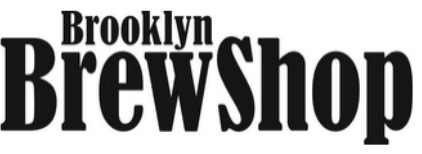IP Alerts

November 4, 2021
On October 27, in Brooklyn Brewery Corporation v. Brooklyn Brew Shop, LLC, the Federal Circuit held that parties opposing a trademark registration at the Trademark Trial and Appeal Board (TTAB) cannot appeal from an adverse TTAB decision if they lack constitutional standing. The Federal Circuit accordingly dismissed Brooklyn Brewery Corporation’s (“Brewery”) appeal of the TTAB’s decision, which dismissed Brewery’s opposition to Brooklyn Brew Shop’s (“BBS”) U.S. trademark application for the below stylized mark for “sanitizing preparations for household use” in Class 5 (“the Class 5 goods”).

Prior to filing its appeal, Brewery petitioned to cancel BBS’s U.S. trademark registration for BROOKLYN BREW SHOP in standard characters and sought to oppose the application for the above-mentioned stylized mark. Brewery asserted that BBS’s marks were likely to cause confusion with its registration for BROOKLYN BREWERY for “beer” in Class 32. Moreover, Brewery claimed that BBS’s marks were merely descriptive and lacked acquired distinctiveness.
The court addressed most of the issues on appeal, but dismissed Brewery’s appeal as to the Class 5 goods for lack of standing. This decision raises new considerations in trademark law.
In response to Brewery’s appeal on the Class 5 goods, BBS argued that Brewery lacked both Article III and statutory standing to oppose BBS’s application in connection with its sanitizing preparations. In its decision, the Federal Circuit noted that it had not previously addressed Article III standing in an appeal of a trademark case from the TTAB. However, based on its prior opinions in the patent context, the court determined that an appellant must satisfy the requirements of both statutory and Article III standing. These requirements include the following: 1) an “injury in fact” that is both “concrete and particularized”; 2) a showing that the injury is fairly traceable to the challenged action; and 3) a showing that it is “likely,” rather than “merely speculative,” that a favorable judicial decision will redress the injury.
The court also concluded that injury in fact in a trademark case requires that “an opposer must demonstrate a concrete and particularized risk of interference with its rights that flow to it from registration of its own mark, or some other Article III injury.” The court offered several examples of such risk, but noted that a concrete and particularized harm specifically does not include a registrant’s mere competition with an opposer, where the registrant receives benefits from an unlawful trademark.
In its analysis, the Federal Circuit determined that Brewery did not provide the requisite proof of an injury in fact to satisfy the Article III standing requirements. The court noted that Brewery did not state how the registration of BBS’s mark for sanitizing preparations in Class 5 would cause it to suffer an injury. The Federal Circuit also found that Brewery neither manufactured nor sold sanitizing preparations and that there was no showing that BBS’s Class 5 goods would likely travel in the same channels of trade as Brewery’s beer.
Brewery countered that it would possibly suffer an injury if it expanded its business to include sanitizing preparations in the future. However, it did not provide further information or details regarding its plans for such an expansion. The Court considered Brewery’s assertion to be hypothetical and, thus, insufficient to establish Article III standing. Therefore, the Federal Circuit dismissed Brewery’s appeal of the Board’s refusal to oppose BBS’s trademark application as to the Class 5 goods.
Trademark owners may need to adopt new strategies in view of the Brooklyn Brewery decision if they intend to oppose a registration or petition to cancel a competitor’s trademark. Even if they only intend to challenge the competitor’s marks at the TTAB, the requisite injury in fact will be necessary to establish standing on appeal to the Federal Circuit. Trademark owners should consider whether they use their own marks in connection with goods or services if they intend to challenge a competitor’s marks on similar goods or services. Based on such use, trademark owners may be able to demonstrate a concrete and particularized risk of interference with their rights, sufficient to establish standing.
For more information on this topic, please contact Fitch Even attorney Kerianne A. Strachan, author of this alert.
Fitch Even IP Alert®


